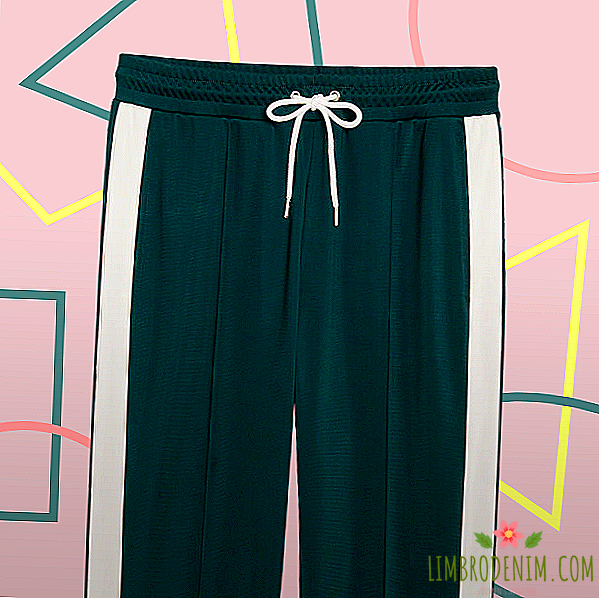“Because I vmazal her”: What are they joking at open microphones
At the end of April there will be ten years, as the first issue of the Comedy Club was released on TNT,- programs, thanks to which residents of even the most remote Russian cities learned about the stand-up, and comedians turned into new rock stars. Stand-up clubs began to open up throughout the country and the comedian parties began to grow: for example, the St. Petersburg community members launched the Leningrad Stand Up Club program at STS in Voronezh, and Voronezh gradually became the capital of the stand-up, where Alexander Dolgopolov shines on stage. Another format that inevitably accompanies the flourishing of the stand in any country is an open microphone, or open-mike, an event where comedians run around new jokes on a live audience and hone their acting skills. Russia was no exception here: today in Moscow several open microphones work in a weekly format. We went to two of them to find out what the young Russian stand-up comedians are joking about and what they want to achieve in the future.

Five minutes from the Chistye Prudy metro station, the Big Open Microphone has been running on Tuesdays for almost a year. In a small club with red brick walls for two hours beginner Moscow comedians pour jokes from the scene, sometimes colleagues from other cities join them. In Alibi, I am greeted with humor on the threshold: a smiling guy in a jacket comes up to ask for a lighter and is testing me a joke on the go: "Do you know why nobody likes to play chess with people with disabilities? They don’t know how to walk." This is not the limit. For a minute, Niko Chutkerashvili, that is the name of my new acquaintance, gives out a whole set of gags, one blacker than the other - about feminists, pornography, sex and violence. During the evening, I will have the opportunity to make sure that Niko’s repertoire does not go beyond these topics: “I’m not a cynical person, but I love to watch the Paralympics. It’s funny how it is - it happens that one-legged skates are skating.” A similar tin, as local comedians call such jokes, will sound plenty from the stage.
Speakers gather at the club an hour before the start to confirm participation. During the evening, 20 people will appear on the Alibi stage, everyone can declare their thoughts within three minutes, unless the public decides otherwise and does not chase the comedian ahead of schedule. This evening, all participants were able to finish their speeches. The organizers keep in touch with comedians through VKontakte, and announcements of events are posted there. “Big Open Microphone” was invented by Cyril Seattle, because he needed a platform to hone new material. "Open T-shirts are part of the comedy infrastructure, a very utilitarian thing, - explains Kirill. - And only in the last turn of the show." Tonight he takes on the role of MC: he dilutes successful and not-so-good performances of comedians with his own jokes and communicates with the audience.
“I’m like a drug, you just haven’t gotten along with me ... Lord, I have worse pickups than stand-ups,” Seatlov’s ironic introspection anticipates the appearance of the first stand-up comedian, former commando and Alexei Shcherbakov, on stage. He begins with jokes about lesbians ("Baba, like guys who are very similar to women") and gays ("In a skirmish between lesbians and fag, they will snatch fagots, because lesbians have eggs"), and ends up with a story about a friend men in the bath zagobobi because of too big a member. Then Sasha Kukin intercepts the baton, he retells the case in the subway, when a girl through the closed doors of the car showed him the language, but ironically, the doors opened again. “The poor thing didn’t have enough of a blow ... Because I vmazma!” The comedian retorted, but, noticing that the audience had tensed, he immediately agreed. “Guys, in fact, I, of course, didn’t vazma.”
Cyril Seatlov believes that there is nothing too much in humor, but it often happens that the joke failed: “Three whales that hold bad jokes: a foolish person, the wrong moment and the wrong words.” After the event, guys often approach him and ask what was good and what was bad in their speeches. "The main skill that comes to a stand-up comic with experience is to create a context. There are no forbidden topics in humor. Any phrase can be placed in a context in which it will not be offensive, but sound and convincing." In the hall this evening sounds a lot of unpleasant jokes about rape, the elderly, women, believers and LGBT people, the authors of which are still working and working to create an informed context. “When Putin talked about“ dabbling in the outhouses, ”it was a terrible, awful muck,” Kirill gives an example from life. “But this was said in a certain context, so 90% of the country's population took his words with a bang. You can also create a context for any situation, and to us, comedians, in this sense is easier than Putin, because we always have a good message. "







The two most popular themes among comedians are their suffering about their personal life (or more often its absence) and annoying reality. So, Yegor Kuks devoted all of his speech to "worthless people" (Fedor Bondarchuk, fans of yo-yo, beatboxers) and the popular slang ("self"). Against this background, there is noticeably more reflection and self-irony in the stand-up of his colleague Armen, who condemns national stereotypes - in particular, the myth that barbecue is the same kind of sports among the inhabitants of the Caucasus as alcoholism in Russians.
Margaret Jacobson helps Seatlova to organize the “Big Open Microphone”. She hit the stand-up by chance: she came to one open-mike, then to another, and then she herself began to write jokes and speak. Rita is 21, she graduated from the HSE Department of Sociology and decided for herself that she would not joke on topics that would be unpleasant for her parents. Just by chance, she got to the casting in "Comedy Battle" - she came for company with friends, and eventually got to the semifinals with her musical stand-up. This evening in "Alibi" Rita does not sing, but she jokes about the inflated expectations of her parents and her beloved cat: "She will succeed faster because I sit and talk, and the cat takes and does." According to Rita, as a girl in a stand-up, she faces one main problem - she is often called sweet, and this is, on the one hand, pleasant, but on the other, she wants to be not so cute, but funny.

The dominance of hard jokes on open microphones is easily explained by the inexperience of comedians, because there is nothing easier than to shock the viewer

There are very few girls among local comedians, except for Rita, only one rises to the stage - Tanya. She also talks about her problems with her parents (“Girls have everything because of dads”) and tries to put men in their place: “Comedians often complain that they don’t have a girlfriend. It sounds like a girl is a kit, but it’s not mandatory feature, it is not issued. But more often it’s also clear why you don’t have a girlfriend. "
Waiting for the release of another Seattle participant is joking, they say, apparently, she has not made up yet and is therefore delayed. And then he diagnoses himself - "sexist." The participant will not go on stage. But after the completion of the “Big Open Microphone” on the street, energetic Niko will again approach my friends with a regular batch of jokes. "Do you know why the fat do not take a striptease? They too often go too far!" To the remark that the joke is not funny, because it reads the author’s obvious contempt for fat people, Niko responds without a hint of irony: "Yes, I can't stand them."
The dominance of hard jokes on open microphones is easily explained by the inexperience of comedians, because there is nothing easier than to shock the viewer. Participants take stereotypical situations and characters, to which the society has claims, and embarrass them. “These jokes don't come in,” says Seattle. “Today, those who are just starting out have had such unsuccessful jokes, or those who, among other things, have decided to try it, you know how they try to put a rotten tooth to their tongue.











Fortunately, there is where to try your strength to beginner Moscow comedians. In addition to the “Big Open Microphone” at Chistye Prudy, at least three open T-shirts work on an ongoing basis: on Wednesdays at Elektrozavodskaya, on Thursdays at Frunzenskaya and at weekends at Novoslobodskaya. All of them make comedian enthusiasts who speak themselves and go to the friendly open microphones. The set of participants on the stages also partially overlaps, but the audience comes across very different. For example, not only young people, but also people of the older generation came to listen to the jokes of the “Lets Twist Bar Open Microphone” on the “Frunzenskaya”. "A student can be an old man in his twenties. And vice versa, a 75-year-old can behave like a schoolboy," commented on the scatter in the auditorium, the organizer of open-shirt, Ruslan Mukhtarov. On Tuesday, we met in Alibi, where Ruslan joked a lot about sons and slang in children's cartoons, consonant with obscene words ("sticky petals").
Mukhtarov is a former KVNschik, sixteen years old in humor and only six months in the stand-up. She earns a living as a professional presenter of events - from weddings to anniversaries. Several years ago, he invented and founded the festival of women's humor "Victor", which comedians from all over the country come together. At the last, fifth festival, for example, there were participants from Novosibirsk, Omsk and Ufa. “I respect female comedians a lot, we underestimate them,” Ruslan says. “There are only men everywhere, so there are so few women joking. But if you collect comedians in one place and give them a microphone, it turns out cool.” On the sponsored Mukhtarov open microphone in the Lets Twist Bar, several girls perform at once. For one of them - Tatiana Velminskina - this is the first experience on the stage and in the stand-up in general, she looks “Stand Up” on TNT and loves the jokes of Stas Starovoitova. Despite the frankly raw material, Tanya keeps on the scene well done, and the audience, albeit not laugh, but do not stint and moral support.
The presenter presents her more experienced colleague, Diana Kulikova, as "a real bitch of Moscow open microphones." Beautiful phlegmatic Diana is one of the organizers of the open microphone "Happy Hour Mic" at Novoslobodskaya. In her stand-ups, she does not limit herself to anything, jokes in the black about cancer, AIDS, Nazism and sex and knows how to keep the viewers' attention. "I am often told that I am rude and inhumanely joking about women and children, and I think that it is inhumane to stretch someone else's vagina with your head. Do you know how a stretched vagina is better than a stretched sweater? She is without pellets." Most of Kulikova's jokes caused laughter in the hall and only one, built on the thesis that children are spoiled sperm and it is logical to throw her out, caused exclamations "boo-y". According to the laws of the genre, the last word is always left to the audience.
"There is no host college in the stand-up. Here are living people - they will tell you whether it is funny or not funny," Cyril Seattle is sure. "You have a goal on TV - to make three editors laugh, and on open microphones there is a whole hall of living people; the tip of the knife and consist in one spoken word. Therefore, you need to go and speak-speak-speak ". Kirill himself is currently working as a screenwriter at Good Story Media, the company responsible for the appearance of Fizruk and Real Boys on Russian television. He has a clear plan on how to make a comedian career. "There is a working scheme in the world, and I live according to it," Seattle shares. "First, you accumulate material, perform on open microphones, collect a 7-minute block of jokes, ride around the cities, make an hour program, shoot it and record an audio album The first time you post on the Internet for free, you spin up, and then at some point you start selling. " Two years ago, Cyril gave his first solo concert, in 2014 he published it on iTunes as the audio album Cyril Seatlov's Divine Comedy and uploaded a free video version on YouTube. Now, in parallel with his postgraduate studies and the work of the scriptwriter, he is looking for a platform to film his new concert. The previous year scored 14 thousand views on YouTube. When independent Russian stand-makers come to the stadiums and how their jokes change by this time, only time will tell.
Photo: Lyuba Kozorezova





